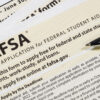The Heritage Foundation’s 2018 Index of Economic Freedom—an annual global study that compares countries’ entrepreneurial environments—was released earlier this month.
Since 1995, the index has measured a nation’s commitment to limited government and free enterprise on a scale of 0 to 100 by evaluating four critical policy pillars, including rule of law and regulatory efficiency.
These commitments are powerful forces that help societies grow in economic freedom. Countries that achieve higher levels of economic freedom consistently outperform others in economic growth, long-term prosperity, and social progress. Those with lower economic freedom, on the other hand, risk economic stagnation, high unemployment, and deteriorating social conditions.
Here are five key points you should take away from the 2018 index.
- The world economy overall is rated “moderately free.” This year marks the sixth year in a row that the world has seen a rise in economic liberty. The world average has now risen three and a half points, from 57.6 to 61.1 since the first edition of the index was released in 1995.
- Six economies—Hong Kong, Singapore, New Zealand, Switzerland, Australia, and Ireland—have achieved very high scores of 80 or more, putting them in the category of economically “free.” These economies were bolstered by their tendencies to have open markets and a smaller size of government.
- Economies rated “free” or “mostly free” in the 2018 index enjoy incomes that are more than twice the average levels in all other countries, and more than five times higher than the incomes of “repressed” economies.
- Economically freer countries that open their societies to new ideas, products, and innovations have largely achieved high levels of social progress. It is not massive redistributions of wealth or government dictates that produce the most positive social outcomes. Instead, mobility and progress require lower barriers to market entry, freedom to engage with the world, and less government intrusion.
- The United States, ranked “mostly free,” had not been performing well in the index over the last decade. That precipitous slide has now fortunately come to a halt, with signs of renewed economic growth reinforced by major regulatory and tax reforms that elevate business confidence and investment. It is notable that the U.S. economy grew at a rate of about 3 percent in the last three quarters, something that economists said was very unlikely just a year ago. For the first time in a while, the United States isn’t just economically stronger. It has a real chance to become economically freer in the coming years.
As countries compete to improve their scores and move up in the rankings, the real winners, of course, are the citizens of the world. Improvements in economic policy that enhance economic freedom have enabled hundreds of millions to escape poverty and countless others to enjoy levels of prosperity never before seen.
Though we sometimes lose sight of it amid the daily grind of politics and the massive overflow of information and misinformation, the world in which we live is profoundly better in myriad ways than the world our parents inhabited.
Now is the time to recommit ourselves to the policies that will further advance economic freedom.
























